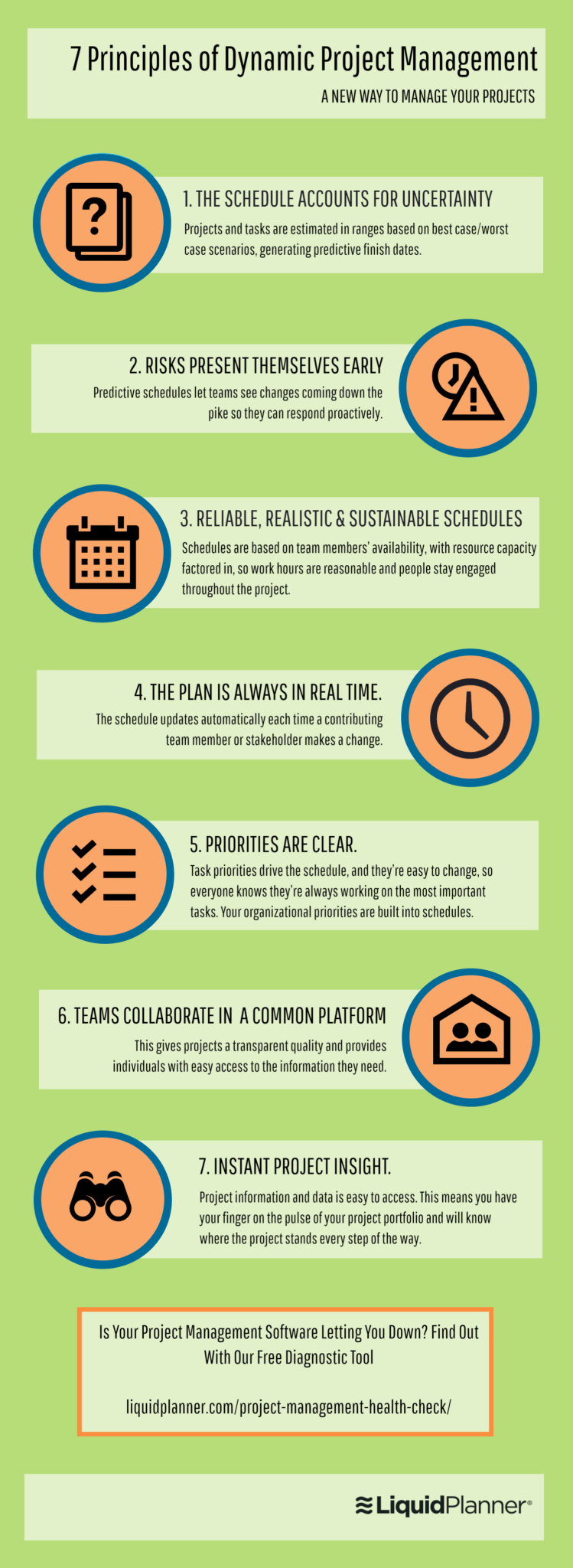We have a unique vantage point here at LiquidPlanner. We talk to people managing projects every day and get insight into their struggles and strivings. Increasingly, businesses are recognizing the fact that they can’t afford the project drag that comes with using traditional project management tools.
The Need for Dynamic Project Management
These days, your business has to keep up with the speed of innovation. Using conventional software like Microsoft Project or spreadsheets, where rigid plans are built on guesstimates and best-case scenarios, just doesn’t cut it.
The problem isn’t just with conventional tools, of course. It’s as much about the methodology underlying the tool. For technology teams, there is a better way: Dynamic Project Management.
Defining Dynamic Project Management
The philosophy behind Dynamic Project Management is that projects are living, evolving constructs. Therefore, teams need a way of planning and scheduling projects that maps to the real world. Dynamic Project Management is a fluid, supportive and responsive way of managing projects that works with the needs of teams rather than against them.
Dynamic Project Management improves on static, unreliable work management tools (or a lack thereof), and helps teams thrive in competitive industries and fast-moving environments. The only way this can happen is through an elegant combination of three key ingredients:
- A fluid process
- Adaptive methodology
- A predictive, automated tool.
Starting With Priorities
Because you start with priorities before building a plan, the Dynamic Project Management system helps teams work on the most important priorities at the right time. It also helps teams see and mitigate risks much earlier than they would with a traditional project management tool, spreadsheets or email.
It’s like going with the current of the project lifecycle, instead of against the current.
To illustrate, here are the 7 principles of Dynamic Project Management:

Could your team benefit from adopting the Dynamic Project Management system?







